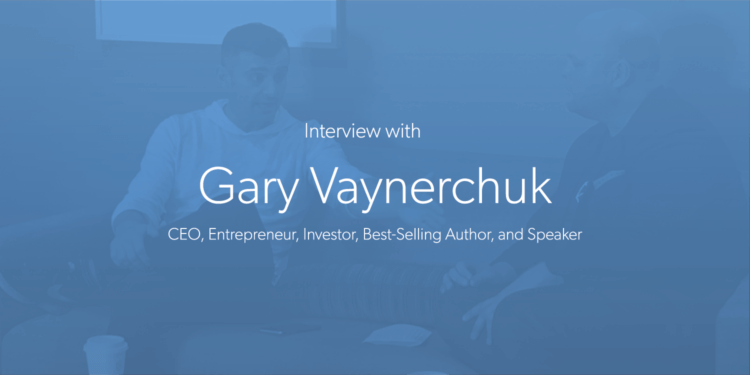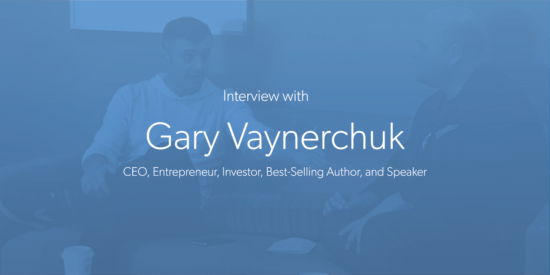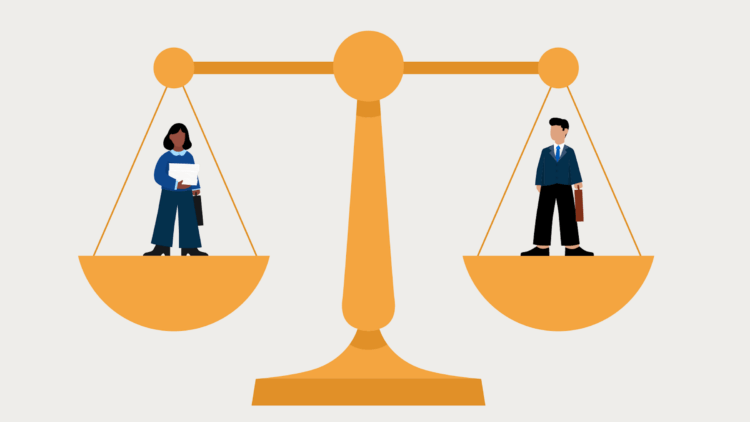Clio Cloud Conference 2016: Interview with Gary Vaynerchuk
The recent Clio Cloud Conference in Chicago was the biggest and best one yet, with an important highlight being the closing keynote speech from Gary Vaynerchuk.
Gary is a social media mogul, author, and speaker who grew his family’s wine business from $3 million to $60 million in five years. He also runs VaynerMedia, a digital consulting agency which represents brands such as General Electric and PepsiCo.
Gary’s rousing keynote speech focused on the shifting digital landscape, and what it means for those in the legal profession. But ahead of that, Clio CEO Jack Newton had the chance to sit down with him for a candid chat about how lawyers could drive business through human interaction.
Below is an edited and condensed transcript of their conversation.
Jack: You’re speaking to a room full of lawyers who I like to think of as the entrepreneurs of the legal space.
You’re a longtime entrepreneur, and a self-described hustler. Tell me about what entrepreneurship means to you, and about how that might reframe the way lawyers might be building a business.
Gary: The people in the room have already made their commitment. They’ve said “I’m willing to take on the risk to do my thing.” Now, if I could break their schedule into time spent as a lawyer and time spent as an entrepreneur—if you could give that 100 points—the holy grail to me is 50/50. Because that means you’re doing your legal thing as well as doing your business thing, and thus you’ll build a large firm.
I don’t want to push too much of the entrepreneurial aspect, because at some point you have to be a lawyer.
The upside has never been greater. Today, if you understand how to use ecosystems of communication, and how to become America’s, Alabama’s, or Birmingham, Alabama’s lawyer from a content standpoint, the upside is incredible.
So it’s finding that balance between practicing law and building a law firm.
Jack: You talk about the importance of human connections. Sometimes digital marketing seems like it’s less human than what lawyers might be used to, which is going to networking events and meeting people face-to-face. So, let’s talk about the human element of things.
Gary: Look, I think Twitter and LinkedIn and everything else that’s emerging—I think they’re all gateway drugs to personal interaction.
I don’t know why anybody has decided that a telephone is any worse as an inbetween than a piece of paper. We sure love writing notes. That’s such an amazing thing that we can do for each other. But if you do that from the phone, it’s taboo.
The truth is, most people push against technology because they’ve lost their hunger or spirit to evolve.
Jack: I’m curious, what are the key requirements to building a real social presence online?
Gary: I think it’s owning who you are. For example, I think that you could have a much better profile, a much bigger business, if you talked in detail about how you actually built Clio over the last eight years. Building a business from scratch to 200 people—it’s real.
But everybody is insecure in their success. They feel like they need to embellish it or make it even bigger.
I’m pumped about the things I’ve done, and I’m very comfortable talking about them. But I’m also very comfortable talking about my shortcomings, or the things that I haven’t done. I think too many people fake the funk.
And there are so many interesting stories between you and your friends starting a company.
Jack: And you tell them.
Gary: And I tell them. Yes, my mom knit me a sweater because I couldn’t afford a Jets Jersey. Now I want to buy the Jets. I understand how that can be very emotional. I also know there’s 40,000 versions of that. There are people who’ve started companies because their dad’s dying on the bed and he says, “Kid, I’ve always wanted you to start a company.” And then they start a company. That’s way better! But they don’t tell their stories.
Jack: How do you see social media changing over the next few years? What trends do you see emerging? For example, with your book, you talk about Twitter engagement being on the decline and other platforms emerging in it’s place. Do some looking into the future for us.
Gary: You know what’s funny about that? I don’t really look into the future as much as people think. I am just quick to comment on the current. I would have never predicted Musical.ly or Snapchat, or Marco Polo.
What I do know is this—the mobile device? This is the game. Everybody in America five years from now will pick their lawyer through this—not through the Yellow Pages, and not through a commercial on TV. Yes, word of mouth will work, because that always is true, but word of mouth is now on mobile. So I think that the mobile device will have a very long run.
What’s next? Is it contact lenses? Is it VR sets? Is it your actual clothes?
I just follow attention. I’m not worried what the next Twitter, Youtube, or Facebook is. That will be very easy to spot.
The challenge is not predicting Snapchat. The challenge for everybody here is, once Snapchat has everybody’s attention, and you’re uncomfortable doing filters, or drawing pictures on top of your face, or doing a ten second video, you’ve got a problem. And nobody’s going to feel bad for you when that happens.
I wish Twitter was the most important thing to everybody in the world right now. I’d have more leverage. I’d be bigger, and it would all be great. But when it became clear that wasn’t the case, I didn’t cry or dwell. I started learning Instagram, Youtube, Medium, and Snapchat instead.
Jack: I think one of the things that holds lawyers back from adopting social media—and from being that authentic voice on social channels—is fear. There’s apprehension around using these tools, and sometimes the regulatory ramifications, but also around the technical hurdle of adopting a new tool.
How do you talk people into overcoming the fears of getting out on social?
Gary: I talk to them about their first kiss, driving a car, going to college, or getting married. That’s what it is. And those are all good things. But the truth is, I try any angle that I can that makes it click for them. Some people really respond to offense. Some people really respond to defense. Some people you have to scare into it. Some people, you have to tell them about all the riches.
But here’s the scariest part, I don’t care—I mean it. What would I prefer to happen with this talk? I’d prefer that everyone really pays attention, gets inspired, goes and tries something. And it starts working. And their life is better. But I’m equally fine if it doesn’t.
Jack: What are the one or two ideas that you’d like to see people take away from your presentation?
Gary: First and foremost, be a media company. If you are a lawyer in America, tell the world about law, whether it be in written form, audio form, video form, by book, radio, or TV show—use the tried and true ways we communicate. If you write an article on medium.com that’s “six things to ask a tax attorney,” you’re bringing value to people.
So first and foremost, I need them to understand that everybody, whether you’re a human or a company, is in the media business now. If they’re smart, and if they want the upside—that’s number one.
The second thing I want them to leave with is, every moment that they’re hesitating, they’re leaving opportunity on the table.
Taxi owners all across America waited and didn’t take an opportunity with technology, and a company came along and killed them. And that’ll continue. I don’t understand what people think is going to happen.
What if Lawyer Army comes out tomorrow? And what if those lawyers were trained in US law, but happen to be in India or China? And what if it actually costs $84 an hour? There’s a lot of law being practiced right now that is commoditized and can be done behind the scenes. It can happen.
I built Wine Library, my first business, always pretending that the wineries were going to be able to sell everything direct to you. What did that make me do? It made me create private labels. It made me create deep relationships. It made me do a lot of things. That scenario didn’t come true, but it made my business better—by being on the offense. And that’s what I want people to do.
We published this blog post in October 2016. Last updated: .
Free On-Demand Webinar - Watch How Law Firms Use Clio
Watch this walk-through to see why over 150,000 legal professionals use Clio’s leading cloud-based legal software.
Watch now







